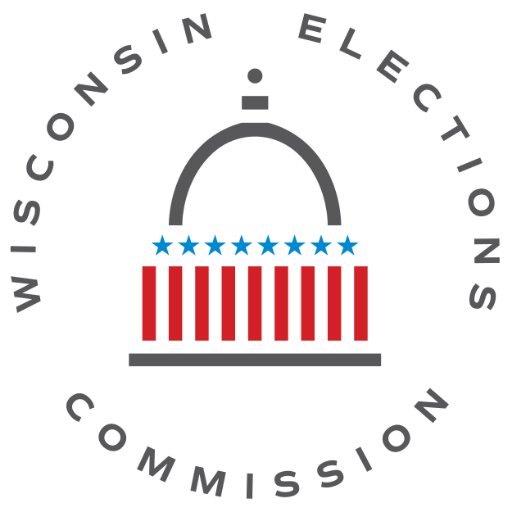Statement from WEC Commissioners regarding Racine County Sheriff’s Department Press Conference
MADISON – The undersigned commissioners who serve on the bipartisan Wisconsin Elections Commission stated their opposition to, and strenuous disagreement with the allegations made Thursday in a press conference orchestrated by the Racine County Sheriff’s Department.
“To put it simply, we did not break the law,” said Commission Chair Ann Jacobs, an attorney from Milwaukee. “In fact, without action from the Commission, many residents in Wisconsin care facilities could have and would have been disenfranchised and not able to vote in the 2020 elections.”
Statutes call for two attempted visits by SVDs to a facility after a 5-day notice period. If the SVDs are not allowed access, then absentee ballots are sent to those residents. Residents complete those ballots in the same manner as other absentee ballot voters. The timeline for these visits, and the sending and return of absentee ballots, all must occur in the 22 days immediately before an election. In 2020, the U.S. Postal Service advised that clerks should plan for 13 days to send a ballot and have it mailed back to them in time to be counted on Election Day.
In a thoughtful, public, and hours-long discussion at the beginning of the COVID-19 pandemic, commissioners acted in a bipartisan fashion to preserve the right to vote by ensuring ballots were sent to care facility voters in time for the ballots to be mailed and returned.
“We knew that for the protection of residents, only essential workers (which did not include SVDs) were being allowed into facilities across the state,” Commissioner Julie Glancey said. “As such, we knew it was essential to preserve the right to vote for those residents, so rather than require the absurdity of sending SVDs to knock on a locked door, we pivoted to the absentee voting process.”
Among the allegations made by the Racine County Sheriff was that a resident deemed incompetent by a court and not permitted to vote was persuaded into voting by nursing home staff members and perhaps taken advantage of in that process.
The Commission believes district attorneys and other law enforcement are the proper authorities to investigate and charge in such instances. Such criminal allegations are outside the jurisdiction of the WEC, whose role is to guide local election officials.
However, it must be stressed that an individual’s voting right can be restricted only by an incompetency order from a judge, not a friend, family member or even a doctor. “The statutes are very clear on this,” Jacobs said.
Further, she explained, once the ballots were issued as part of the absentee process, the rules surrounding assistance for a voter are different than they are for someone utilizing a Special Voting Deputy. An absentee voter can, in fact, receive some measure of help in completing their ballot, as outlined in statutes.
Commissioner Marge Bostelmann pointed out that the Commission consulted with advocates for the aging and disabled communities in addressing the challenge of nursing home voting during the pandemic. The Commission reconsidered its guidance at each statewide election in 2020 and adjusted its guidance based upon the most up-to-date information available to it.
While the WEC has embraced virtual SVDs as a possible solution to providing nursing home residents with voting assistance, not all facilities have the necessary equipment or training to allow for digital assistance. Additionally, it is unclear how a digital process would work with the rights of observers. The WEC is an agency that can’t make demands on private facilities to purchase technology. Nor does the WEC have control over the individual staff members who work in nursing homes.
Moving forward, the Commission reiterates its commitment to protect a person’s right to vote. In order to guarantee that right in 2020, while facing an unparalleled pandemic, the Commission exercised its best judgment, in consultation with experts and stakeholders, and issued its guidance. The Commission will continue to advocate for the rights of Wisconsinites to exercise their precious, constitutional right to vote.
Chair Ann W. Jacobs
Commissioner Marge Bostelmann
Commissioner Julie Glancey
Commissioner Dean Knudson
Commissioner Mark Thomsen
NOTE: This press release was submitted to Urban Milwaukee and was not written by an Urban Milwaukee writer. While it is believed to be reliable, Urban Milwaukee does not guarantee its accuracy or completeness.
More about the 2020 General Election
- Senator Agard Statement on Senator Knodl’s Continued Relitigation of the 2020 Presidential Election - Dane County Executive Melissa Agard - Aug 29th, 2023
- Report Calls For Criminally Charging State’s Fake Electors - Henry Redman - Dec 19th, 2022
- Vos Withdraws Subpoenas, Ends Gableman Probe - Henry Redman - Aug 30th, 2022
- Judge Blasts Gableman Probe, Deleted Records - Henry Redman - Aug 17th, 2022
- Vos Fires Gableman, Ends Election Probe - Shawn Johnson - Aug 14th, 2022
- Judge Orders Gableman To Pay $163,000 In Legal Fees - Rich Kremer - Aug 2nd, 2022
- Prosecute 2020 Fake Electors, Advocates Demand - Erik Gunn - Aug 1st, 2022
- Trump Calls For Nullification of Wisconsin’s 2020 Election - Henry Redman - Jul 12th, 2022
- Legal Fight Over Gableman Probe Keeps Growing - Shawn Johnson - Jun 30th, 2022
- Back In the News: Fake Elector Scheme Dogs Ron Johnson - Bruce Murphy - Jun 28th, 2022
Read more about 2020 General Election here
Mentioned in This Press Release
Recent Press Releases by Wisconsin Elections Commission
WEC Schedules Public Hearing on Proposed Administrative Rules
Dec 3rd, 2025 by Wisconsin Elections CommissionPreliminary Hearing on Proposed Rules for Voting Equipment/Ballot Security, Training of Election Inspectors and Special Voting Deputies






















